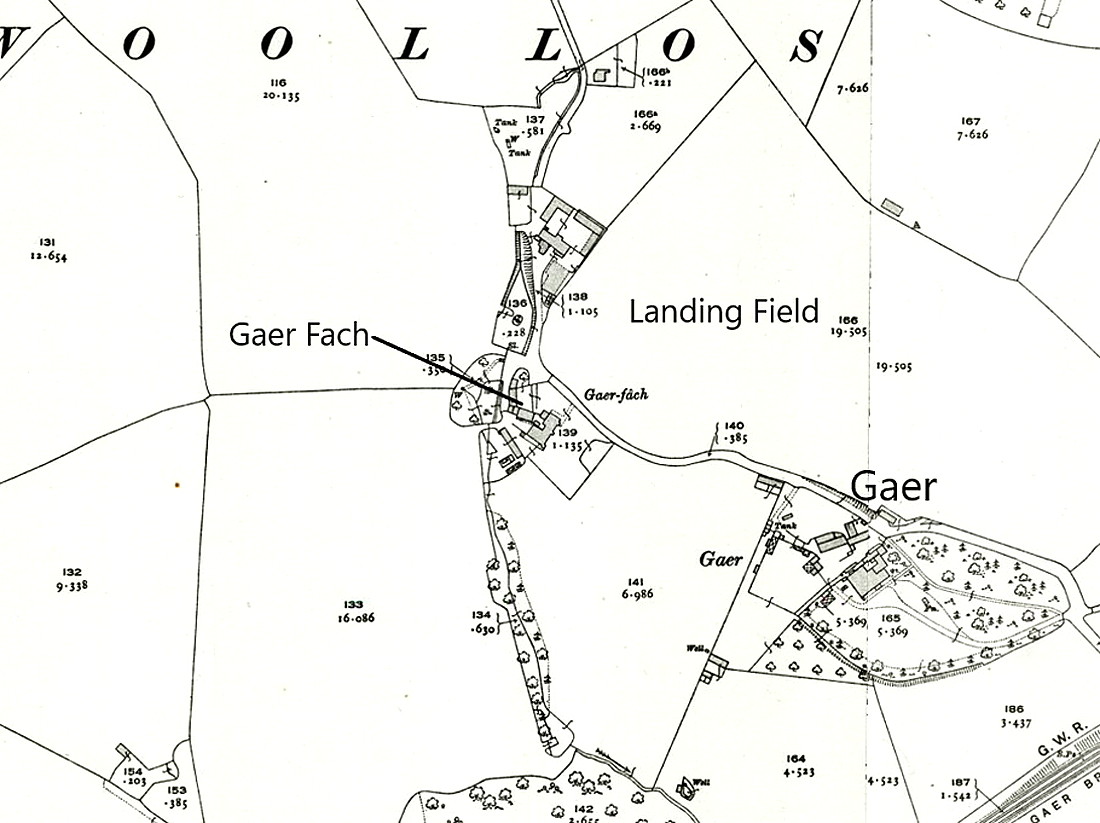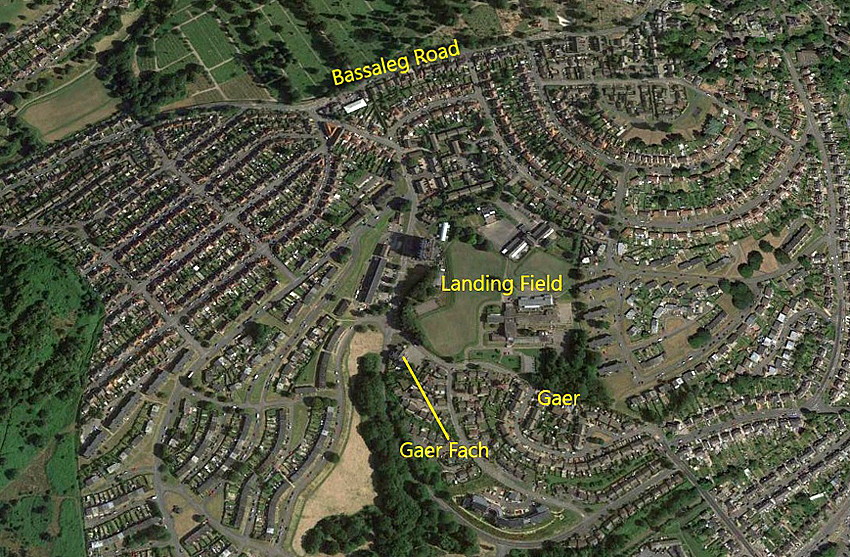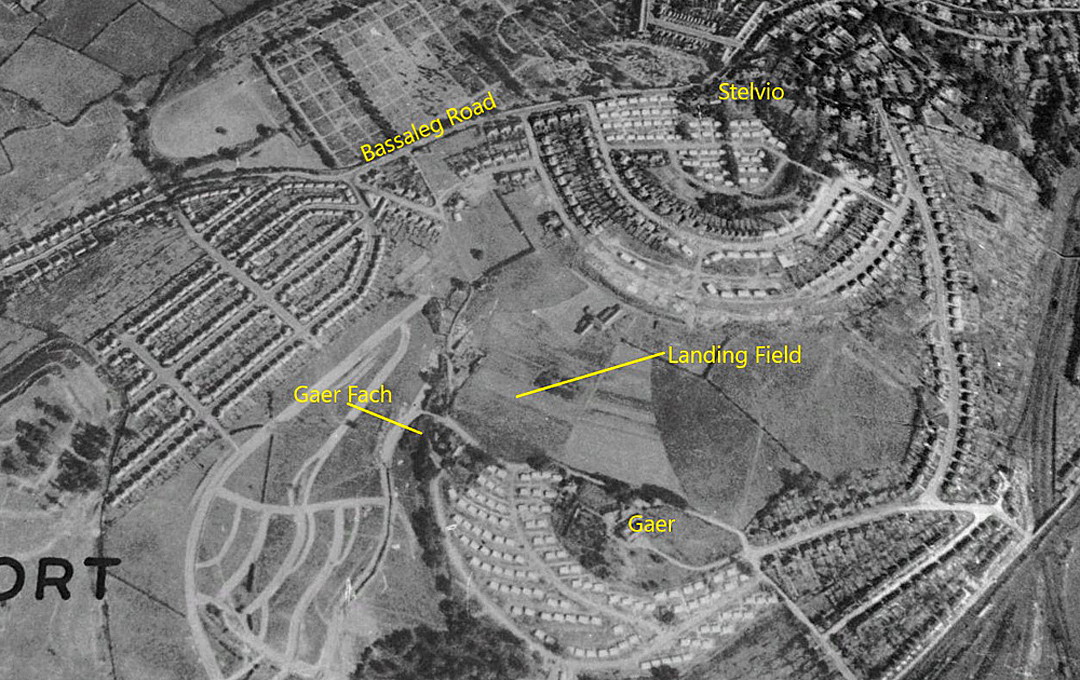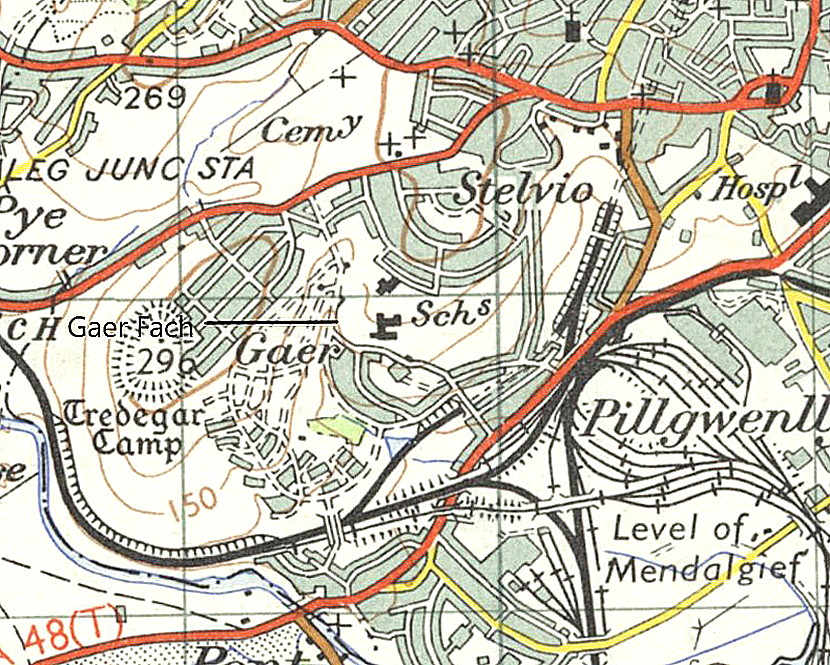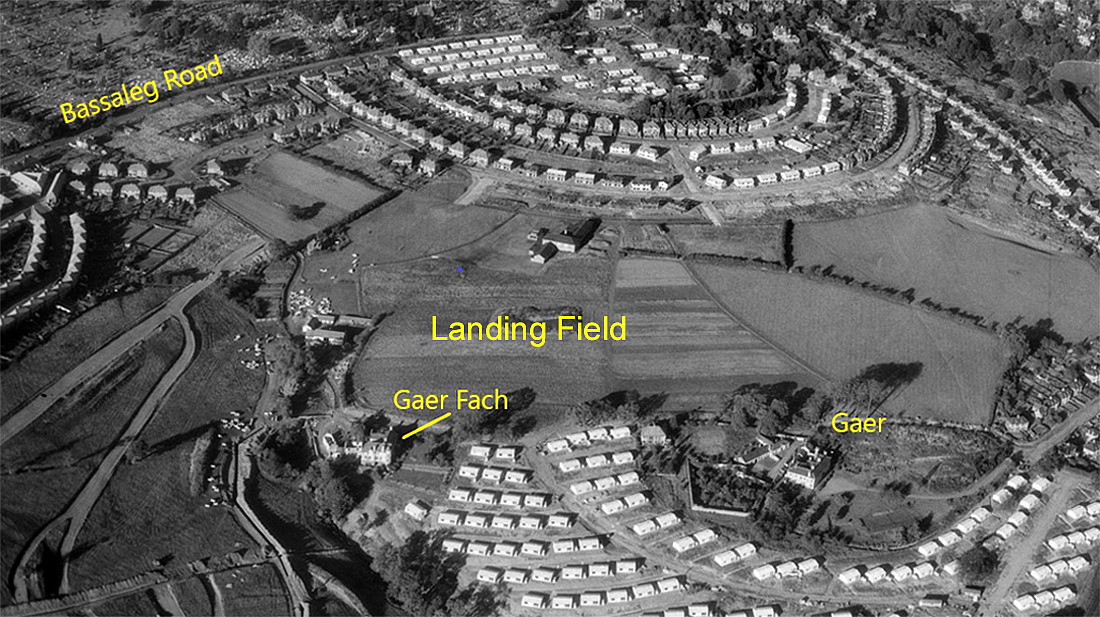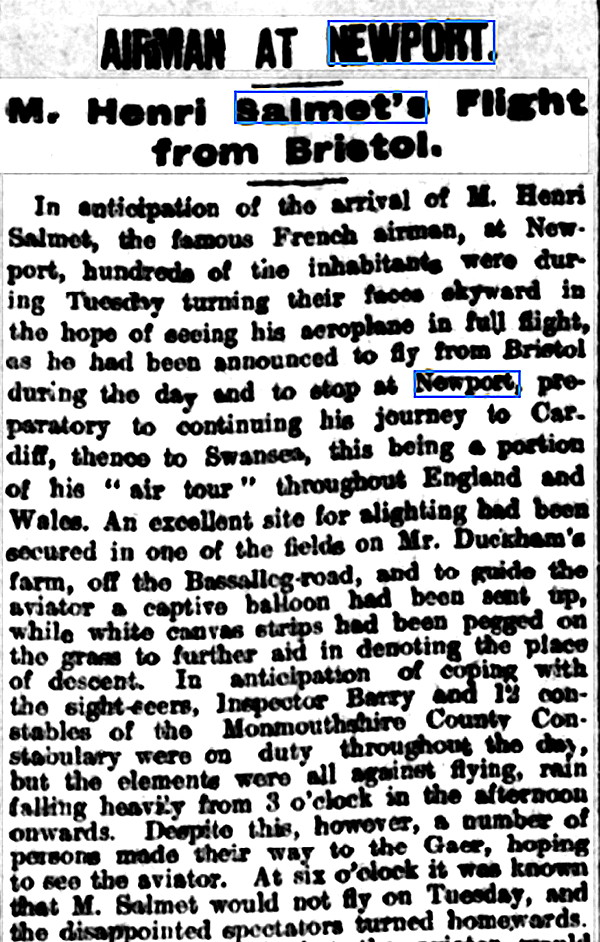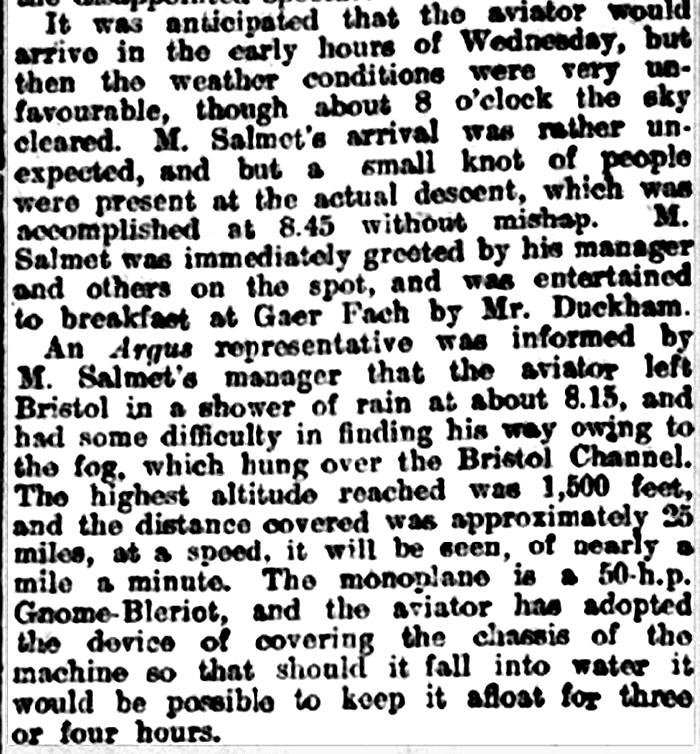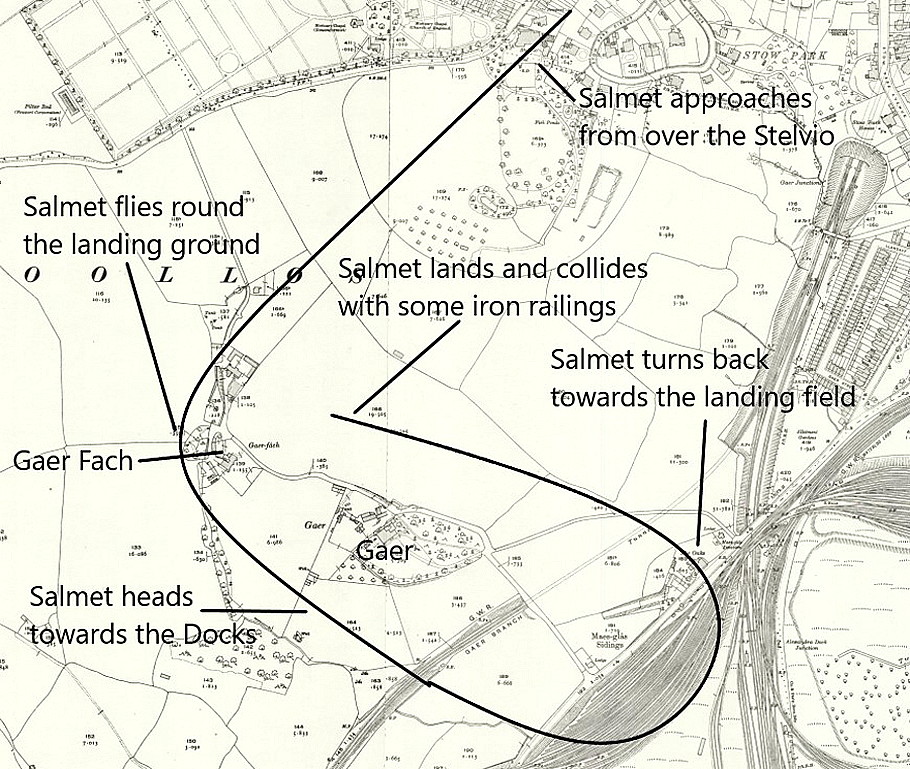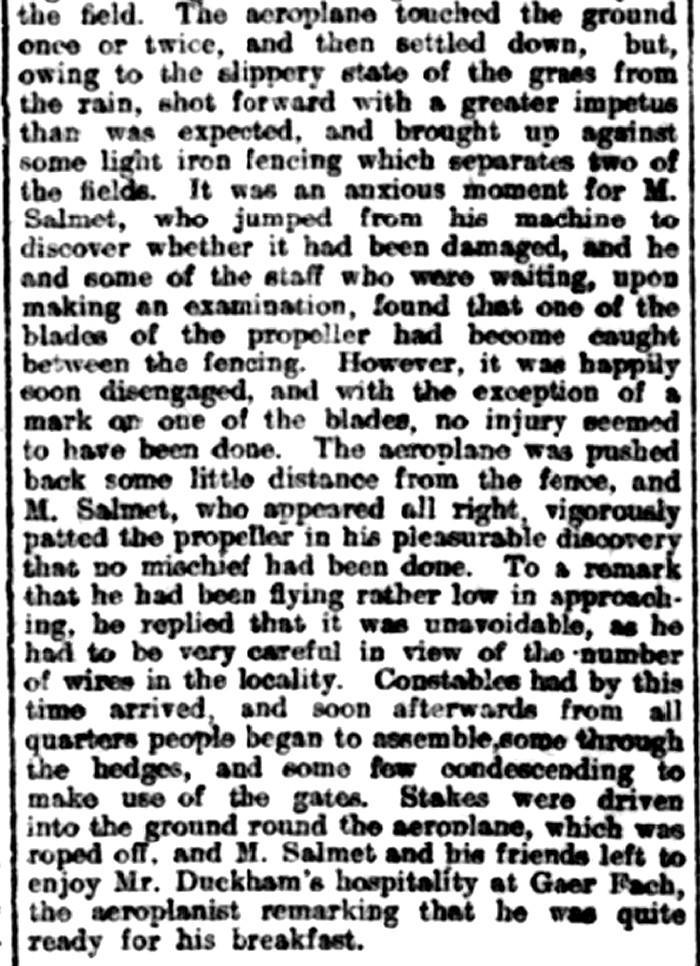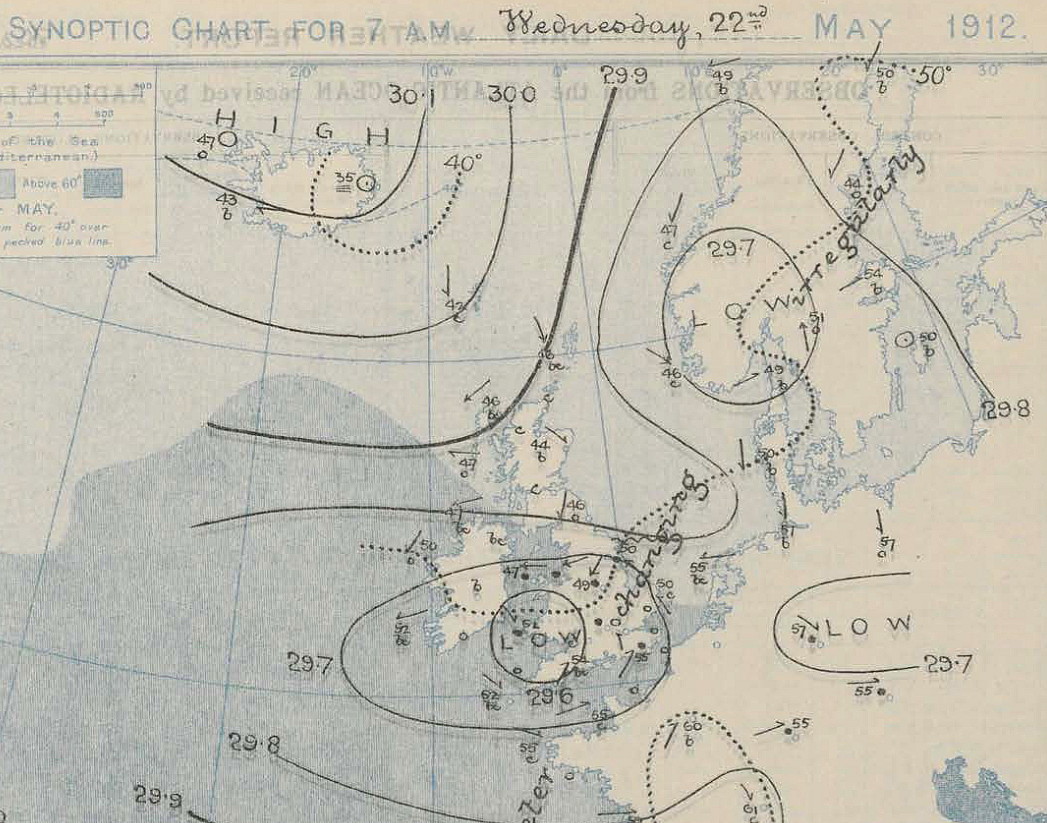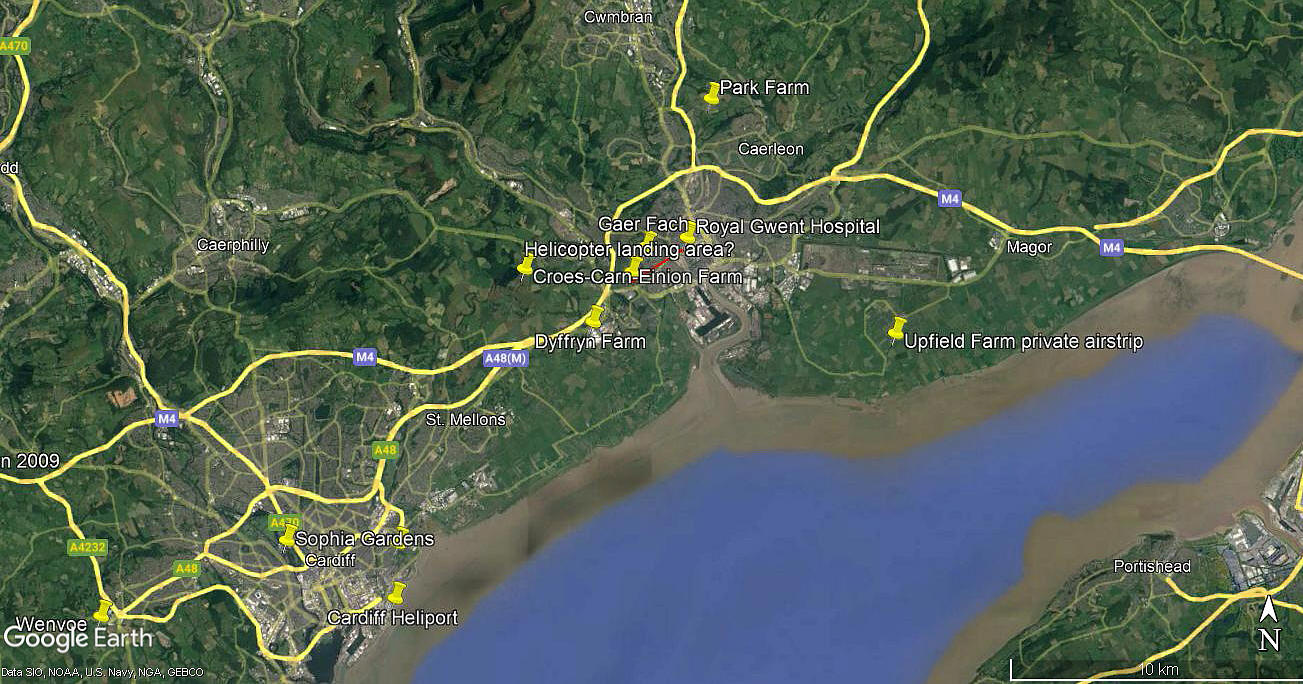Gaer Fach
GAER FACH: Temporary Landing Ground
Location: Just W of Newport town centre
Period of operation: 22nd May 1912
In 1912 the then famous French aviator Henri Salmet had been sponsored by the Daily Mail to undertake a tour in the UK, mostly in England but venturing into South Wales fairly early on. Nothing like this had ever been seen before. Indeed, in those days most pilots rarely ventured far from their home aerodromes although a few brave pioneers had already undertaken very substantial distances, usually competing in air races.
This was an entirely different venture conjured up by the Daily Mail, who had also sponsored in 1912 the equally famous British aviator, Claude Grahame-White, to undertake a similar tour called "Wake Up England". The principle difference being the schedule which was, especially in those days, very intensive and closely spaced in time.
Although by that time aeroplanes and indeed their engines, had become, in even in a few years, remarkably reliable by and large, by far the biggest problem to overcome was the British weather - always changeable, often to extremes day by day - even during a day of course. The two main elements presenting dangerous conditions were wind and rain. With such light and slow underpowered aircraft high winds were a major hazard , especially if significant turbulence occurred, which it normally does.
Heavy rain was very much another hazard because sitting up exposed to the elements on their machines, (as aeroplanes were called in those days), and wearing goggles, they could easily become nigh on blinded - especially when struggling with the controls - leaving little time to wipe clear their googles. Also, heavy rain could be inflicting serious damage to the airframe and propeller.
We have to thank Mike Holder, a great friend of this 'Guide', for researching this tour by Salmet in 1912. A full schedule can be found in my article - 'The 1912 tour by Henri Salmet'.
A MICHAEL T HOLDER GALLERY
Note: The newspaper article, divided into four parts to make it easier to read, was published by the South Wales Weekly Argus and Monmouthshire Advertiser on the 25th May 1912.
Note: The local area view is from my Google Earth © derived database.
It is clear that soon after the start of this tour things were going somewhat pearshaped. Salmet was scheduled to arrive here on the 21st and it seems a large crowd had arrived despite the rain. In most cases Salmet did manage to arrive in time for a major civic reception to be staged, but at Newport it appears it was something of a non-event.
Reminds me of a much quoted saying when I was flying around in a light aircraft. "Time to spare? Go by air!"
We'd love to hear from you, so please scroll down to leave a comment!
Leave a comment ...
Copyright (c) UK Airfield Guide














